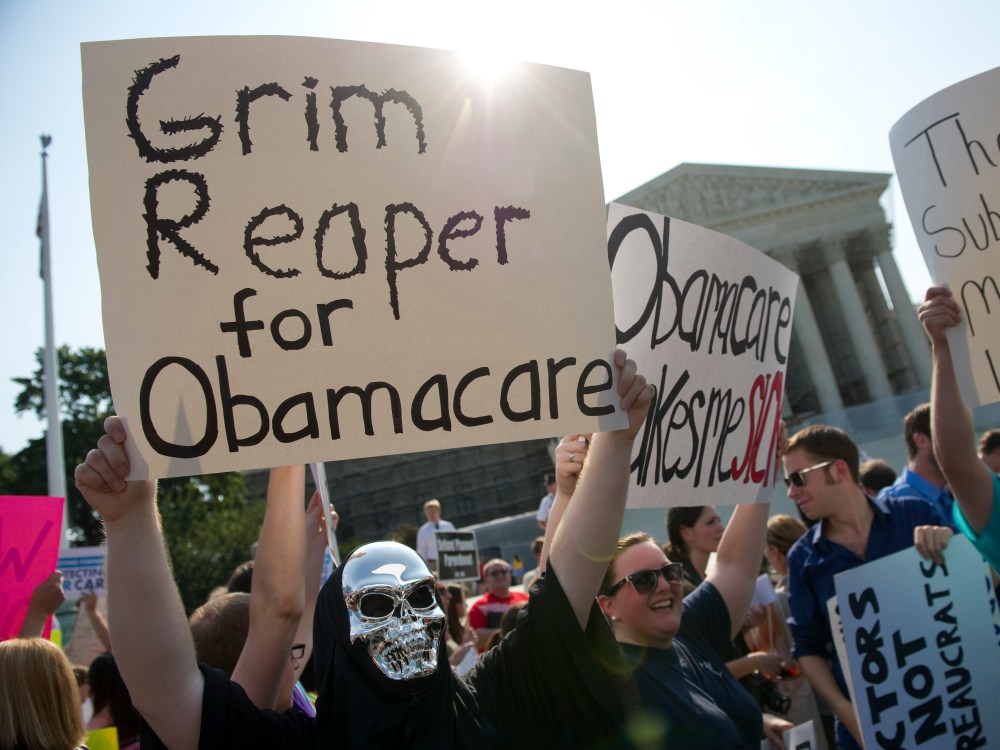Thought the legal battle over the Affordable Care Act ended with the Supreme Court’s much-ballyhooed decision last June? Think again.
New challengers are pressing the fight against Obamacare with lawsuits in Oklahoma and Washington, D.C. While their claims turn on an obscure technicality, the suits have the potential to cause major problems for the Affordable Care Act. If the lawsuits were to succeed, lower-income Americans in more than two dozen states could be ineligible for tax credits that are a key part of the act. And employers in those states could be exempt from the “employer mandate”—a requirement that larger employers offer insurance plans or pay a hefty penalty. Without those pieces in place, the act wouldn’t work as intended in large swaths of the country.
The stakes are high even though the lawsuits are getting far less attention than they did in the first go-around. That, no doubt, is partly because the arguments this time are a far cry from the lofty claims about “individual freedom” that dotted last year’s Supreme Court case. Instead, they turn on obscure details of how the Affordable Care Act was written—details, as one commentator put it, that “could make even a seasoned tax lawyer’s head hurt.”
The issue boils down to what Obamacare supporters say was nothing more than a drafting mistake by Congress. The Affordable Care Act calls for each state to set up an insurance “exchange”—the law’s term for a regulated marketplace where consumers can shop for insurance. But, recognizing that some states might delay or refuse to set up exchanges, the act also says the federal government must take on that task in any state that drags its feet.
That’s where the technicality crops up. A centerpiece of the Affordable Care Act is its tax credits: The act was designed to offer the credits to lower-income Americans who enroll in health care through exchanges as a way to make the coverage more affordable. But when Congress drafted that part of the law, it wrote that applicants are eligible for credits if they enroll “through an Exchange established by the State.” It said nothing about exchanges established by the federal government in states that haven’t taken action.











